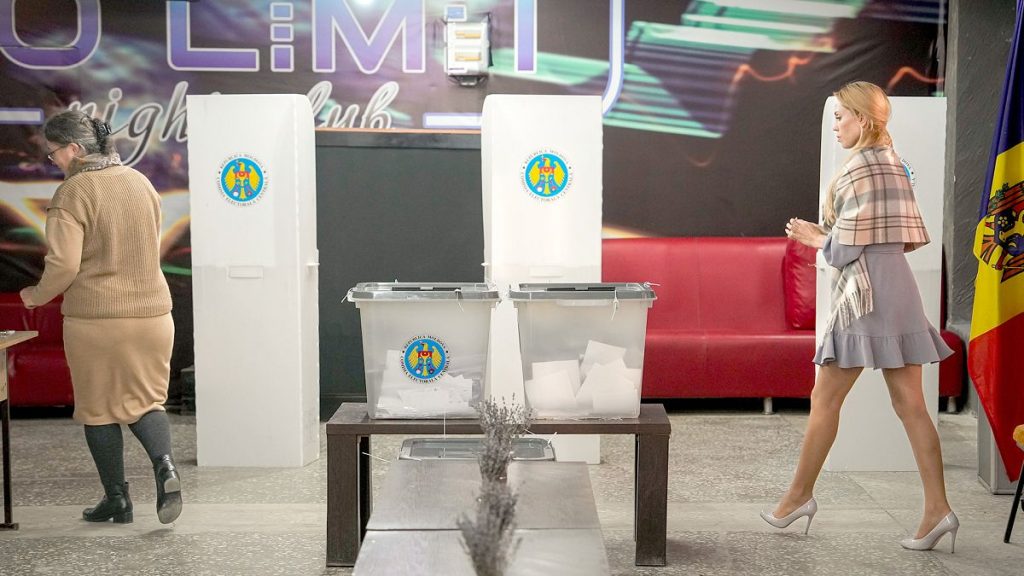In Moldova, voters are faced with a choice between the pro-European incumbent Maia Sandu and challenger Aleksandr Stoianoglo, who favors closer ties with Russia. The election has garnered attention due to the potential impact on the country’s relationship with the EU and Russia. Sandu, who advocates for EU integration, faced a tough challenge from Stoianoglo, who has the support of the pro-Kremlin Socialist Party. The election has been marred by allegations of Russian interference, including vote-buying, prompting concerns from the European Commission and the White House.
The first round of the presidential race in Moldova took place alongside a referendum on EU membership, which was narrowly approved by a majority of voters. Despite Sandu winning the most votes in the first round, she did not reach the required 50% to win outright. Both candidates surpassed their polling averages, with Stoianoglo gaining triple what was predicted. The election has highlighted tensions between pro-European and pro-Russian factions in Moldova, with voters expressing frustration with Sandu’s leadership, particularly in the context of economic challenges and the aftermath of Russia’s invasion of Ukraine.
As the election runoff approaches, both candidates are intensifying their efforts to appeal to voters. Sandu has sought to reach across the aisle and appeal to more Russophile voters, while Stoianoglo has positioned himself as both pro-European and supportive of closer ties with Moscow. However, in the final days of campaigning, Stoianoglo has emphasized his openness to Russia and criticized the EU’s policies. The election has also seen accusations of corruption against Stoianoglo, stemming from his decision as chief prosecutor to suspend a businessman’s prison sentence, leading to a scandal and his subsequent firing.
The European Union is closely monitoring the election in Moldova, with concerns about the fairness and transparency of the voting process. EU leaders are worried that allegations of Russian interference could hinder Moldova’s chances of EU accession, especially if Sandu wins. Sandu has called for fair elections, urging local mayors to mobilize their communities to ensure a transparent outcome. The election in Moldova is being watched closely by European officials, following a similar contentious election in Georgia involving allegations of Kremlin interference and a choice between EU integration and the status quo.
The outcome of the Moldovan election runoff will have far-reaching implications for the country’s future direction, particularly in terms of its relationship with the EU and Russia. The electorate faces a stark choice between moving closer to the West or aligning more with Moscow. The election has shed light on internal divisions within Moldova, with voters expressing concerns about economic challenges and Sandu’s leadership. As the candidates make their final appeals to voters, the international community is closely watching to see how the election will unfold and what impact it will have on Moldova’s geopolitical stance.


